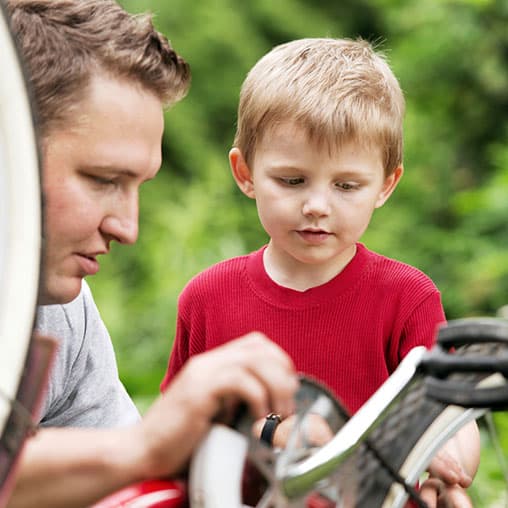
That’s What Dads Do
Pushing through and doing hard things can make the biggest impact on your kids. "That's what Dads do." Find out more from Steve Farrar, Roland Warren, Ron Deal, R.V. Brown and Ben Rainey.
Show Notes
About the Host
About the Guest
-
Dave and Ann Wilson
Dave and Ann Wilson are hosts of FamilyLife Today®, FamilyLife’s nationally-syndicated radio program. Dave and Ann have been married for more than 38 years and have spent the last 33 teaching and mentoring couples and parents across the country. They have been featured speakers at FamilyLife’s Weekend to Remember® marriage getaway since 1993 and have also hosted their own marriage conferences across the country. Cofounders of Kensington Church—a national, multicampus church that hosts more than 14,000 visitors every weekend—the Wilsons are the creative force behind DVD teaching series Rock Your Marriage and The Survival Guide To Parenting, as well as authors of the recently released book Vertical Marriage (Zondervan, 2019). Dave is a graduate of the International School of Theology, where he received a Master of Divinity degree. A Ball State University Hall of Fame quarterback, Dave served the Detroit Lions as chaplain for 33 years. Ann attended the University of Kentucky. She has been active alongside Dave in ministry as a speaker, writer, small-group leader, and mentor to countless wives of professional athletes. The Wilsons live in the Detroit area. They have three grown sons, CJ, Austin, and Cody, three daughters-in-law, and a growing number of grandchildren.
-
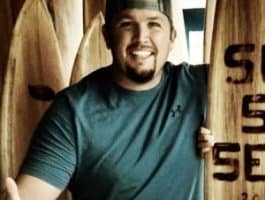
Ben Rainey
Ben Rainey is the son of Dennis and Barbara Rainey.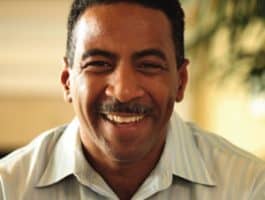
Roland Warren
Roland C. Warren is the former President of the National Fatherhood Initiative and currently the President & CEO of Care Net, the nation’s largest network of pregnancy resource centers. He has appeared on The Oprah Winfrey Show, The Today Show, CNN, Focus on the Family, Dateline NBC, BET, Fox News Channel, Janet Parshall’s America and others speaking on issues of marriage and fatherhood. His writing has also appeared in numerous publications such as The Washington Post, Christianity Toda...more
Ron Deal
Ron L. Deal is one of the most widely read and viewed experts on blended families in the country. He is Director of FamilyLife Blended® for FamilyLife®, founder of Smart Stepfamilies™, and the author and Consulting Editor of the Smart Stepfamily Series of books including the bestselling Building Love Together in Blended Families: The 5 Love Languages® and Becoming Stepfamily Smart (with Dr. Gary Chapman), The Smart Stepfamily: 7 Steps to a Healthy Family, and ...more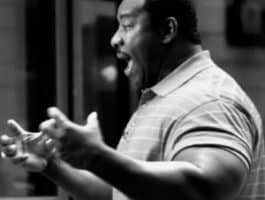
RV Brown
Evangelist RV Brown is founder and President of Outreach to America's Youth, Inc. (O.T.A.Y.) RV received his B.S. degree from South Carolina State University. He played football all four years. He received certificates of training from Community Intervention, Inc., Minneapolis, Minnesota. He also received a certificate from Morehouse School of Medicine and Drug Abuse in the Community. RV Brown is the author of the workbook, Breaking The Chain. This book is used to teach students in s...more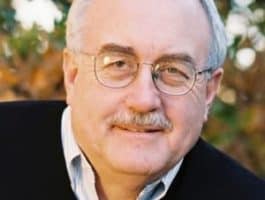
Steve Farrar
Steve Farrar is the founder and chairman of Men's Leadership Ministries. A graduate of California State University, Fullerton, with a Master's degree from Western Seminary in Portland, Oregon, he also has an earned a doctorate from Dallas Theological Seminary. Steve authored the best-selling book, Point Man: How a Man Can Lead His Family and has since written fifteen other books. He is a frequent speaker at conferences, for Promise Keepers and at many other events nationwide. Steve and his wife,...more
Pushing through and doing hard things can make the biggest impact on your kids. “That’s what Dads do.” Find out more from Steve Farrar, Roland Warren, Ron Deal, R.V. Brown and Ben Rainey.
Bob: If you’re a dad, here’s a question for you: “When was the last time you hugged your son or your daughter, told them you’re proud of them / that you love them?” Here’s Roland Warren.
Roland: When my oldest son, Jamin, was about three or four, I started having a difficult time hugging him. It sounds maybe bizarre, but it just felt weird to me. What I realized was that I was about to pass on a legacy that I had inherited. See, when I was a kid that age, no one hugged and kissed me—that wasn’t modeled for me. So, it’s difficult to be what you don’t see / it’s difficult to give what you didn’t have. As a result, I was about to pass on something; and my kids would be ones that were sitting here, at whatever age, saying, “My dad never hugged me / never kissed me,”—that kind of thing—and not because of something that was wrong with them but because something that was wrong with me.
Bob: This is FamilyLife Today for Tuesday, June 13th. Our host is the President of FamilyLife®, Dennis Rainey, and I'm Bob Lepine. Your kids need you to be the dad that God calls you to be—
1:00
—a dad who loves and leads / who protects and provides for his children. Stay with us.
And welcome to FamilyLife Today. Thanks for joining us. We are focusing on the power of a father in a family’s life, especially in the lives of his children as he is engaged and involved, and leading, and having fun. We’re spending time listening to some of the voices we’ve had, as guests, on FamilyLife Today over the years—men and women who have talked about a dad and his power in the family.
Dennis: And one of them that comes to my mind is Coach John Wooden, who coached UCLA to ten championships in twelve years in basketball.
2:00
Bob, you remember—it was one of our favorite interviews out of more than 5,000 we’ve done over the past 25 years. Coach Wooden talked about how he threw a cow chip at his brother and his dad caught him. His dad loved him enough to spank him.
Bob: Yes.
Dennis: I know today that seems so brutal and barbaric; but Coach Wooden just talked with fondness of how his father—although a man who didn’t make a lot of money / didn’t have a lot of education—was a man who taught him about character, integrity, about responsibility. When John messed up, he brought a little pain to his life so he could learn the lesson.
Bob: And if our listeners are basketball fans, or they’d just like to hear a great interview with a guy who was 91 years old when we interviewed him, the interview with Coach Wooden is available at FamilyLifeToday.com. You can download it and listen to it anytime you like or stream it from our website. Again, the website is FamilyLifeToday.com.
3:00
Coach Wooden had a dad who was there—who was engaged / who was involved. Not every young man grows up with—
Dennis: Right.
Bob: —that kind of a situation.
Dennis: Right.
Bob: Some young men become fathers with a deficit, because they never saw fatherhood modeled well for them. We talked to Roland Warren about this. He gives leadership to Care Net® and has written a book called Bad Dads of the Bible. He talked about what happens when you have a fatherhood deficit, growing up.
[Previous Interview]
Roland: When my oldest son, Jamin, was about three or four, I started having a difficult time hugging him and kissing him. It sounds maybe bizarre, but it just felt weird to me. I went to my wife—who is a Texan, by the way, and very direct—and I said to her—[Laughter]
Dennis: I was going to ask you: “What does Texas have to do with any of this?”
Roland: You’ll see in a minute. You know, you don’t mess with Texas. [Laughter]
Dennis: We’re getting the picture.
4:00
Roland: You get the picture. I went to her and said, “Hon, this hugging and kissing stuff—I just don’t like it. She just looked me straight in the face and said, “Well, you’re just going to have to hold your nose and do it because they need it.” I had the presence of mind to listen to her; because I knew, deep down inside, that they did. Intellectually, I got there—so, I started hugging them and kissing them. Over time, it got better; and I was able to do it. Now, they’re 31/28; and I hug them and kiss them all the time. It’s not a real issue for me.
What I realized was that I was about to pass on a legacy that I had inherited. See, when I was a kid that age, no one hugged and kissed me—that wasn’t modeled for me. It’s difficult to be what you don’t see / it’s difficult to give what you didn’t have. As a result, I was about to pass on something; and my kids would be ones that were sitting here, at whatever age, saying, “My dad never hugged me / never kissed me,”—that kind of thing—and not because of something that was wrong with them—but because something that was wrong with me.
When I think about that absence, a lot of guys don’t really go there; because if you do go there, you’re going to have to go to some places that are painful places.
5:00
You’re going to have to deal with the fact that you were rejected by someone, who should love you like no other, and that there’s a wound there. For a lot of guys, that’s a very, very emotional place to go—it’s easier just to discount it. If you do that, a lot of times, you’ll end up being a guy who does exactly what your father did—which is not connect with your kids or abandon your kids—because, in order for you to connect, you have to realize that: “That wasn’t good what happened to me.”
[Studio]
Bob: And again, we’ve been listening to Roland Warren as he has been talking about how some of us need to figure out how we’re going to break a cycle in a family and do things differently than what we saw modeled for us.
Dennis: And that’s very real to a lot of our male listeners—they didn’t have a father who loved them / maybe hurt them deeply. As a result, there is an open wound. Well, that’s a great opportunity to do a couple of things—to say: “You know what? I refuse to allow this wound to define me, and cause paralysis in me, and keep me from being the dad my kids need me to be.”
6:00
The first thing I’d do is—I’d say, “Begin to ask God to heal the wound.” To do that, ask Him to lead you to some dads who’ve done a good job—who can mentor you, encourage you, equip you and tell you what it looks like / show you what it looks like. Then ask God to turn that wound into a holy scar, where you begin to build into the lives of your kids; and you can look back on it and say: “You know what? I didn’t have the background I wished I’d had, but I refuse to allow that to define me permanently. I decided to become a trophy of grace—someone that God had worked in his heart—and turn me into a dad who knew what to do.”
My dad—when he was a boy, his father deserted him. Now, this was back in the early 1920’s, when divorce was not a cultural norm / it was totally unacceptable. This dad—my dad’s dad—deserted him and his eight brothers and sisters.
7:00
I look back on my dad—I never once heard him ever say a bad thing about his father and what he didn’t get.
But I tell you what I did get from my dad—he was at my games. He encouraged me / he built into my life. He taught a fifth-grade Sunday school class, with a bunch of boys that were rambunctious, and invested in their lives. He was rock solid with his integrity and how he did business and really, practically-speaking, how he loved my mom. He wasn’t a victim; but I can look back and say I personally benefited by a man, whose father didn’t do it all right, but who decided to invest in a boy. I’m who I am today because of my dad, Hook Rainey.
Bob: One of our guests on FamilyLife Today over the years was Steve Farrar.
8:00
Steve had the same kind of testimony about the impact that his father had in his life as he was growing up.
[Previous Interview]
Steve: My dad is 75 years old. I haven’t talked with him today. I’ll guarantee you my dad got up at 5:30 this morning, went downstairs, turned on the coffee maker, went over got his Thompson® Chain-Reference® Bible, got his coffee, went upstairs, spent the first hour this morning in the Word and prayer. My dad prayed for me this morning—I’ll guarantee you.
Bob: Hang on. I want to test that guarantee out.
Dennis: You’re going to call him?
Bob: Yes; we’ll call your dad and let’s just see—we’ll test that guarantee.
Dennis: What’s your dad’s name?
Steve: Jim Farrar.
Bob: Jim Farrar. [Ring]
Jim: Hello.
Steve: Hey dad. How are you doing?
Jim: Hey; fine.
Steve: Hey, Dad, I’m here in Little Rock with Dennis Rainey. You remember Dennis—you’ve met Dennis.
Jim: Sure; sure.
Dennis: Hi! This is Dennis. How you doing, Jim?
Jim: I’m doing great.
Dennis: We’re actually trying to check the veracity of your son, Steve, and his truthfulness. We want to ask you: “Where were you this morning at 5:30?”
9:00
Jim: Well, I was on my way—I had just got up—I was going out to teach a Bible study. [Laughter]
Steve: If you weren’t dad—normally, like tomorrow, what would you being doing about that time?
Jim: Well, I’d be in here looking over the Bible and seeing what was set up for today and communicating.
Steve: Alright.
Bob: Spending a little time in the Word?
Jim: Sure.
Bob: And would you spend some time in prayer?
Jim: Sure.
Bob: Would you include your son in that?
Jim: Always.
Dennis: How long you been doing this, Jim?
Jim: Oh man. I couldn’t tell you—I mean, it’s been years and years.
Dennis: So, it wasn’t last week you started doing this?
Jim: No; absolutely not.
Steve: It’s been, at least, 45 years; because I remember, as a little boy, waking up early and seeing—
Jim: Many, many years Dennis. It’s just—you get into it, and that’s what you do.
Steve: That’s what dads do.
Dennis: That’s what dads do. You know, you’ve been an encouragement to a lot of dads, here, on FamilyLife Today. I want to thank you for being with us.
10:00
Jim: Well, I’m glad to do it. Keep up the good work!
Dennis: Hey, when you pray for Steve, pray for Bob and me; will you?
Jim: We sure will.
Dennis: Alright. Bye-bye
Jim: We’ll see you guys.
Steve: Bye-bye Dad.
Jim: Bye.
[Studio]
Bob: That’s what dads do; huh?
Dennis: Yes; they say a picture is worth a thousand words—just that little dialogue, right there—is that powerful?
Bob: Yes.
Dennis: Forty-five years of doing the same thing and where his son can count on him praying for him.
Bob: We have to recognize that a lot of our parenting is less about what we do and more about who we are and how who we are is on display in front of our kids.
Dennis: And it doesn’t mean we shouldn’t say things, and train, and equip our children with words. It does mean that our words and our lives need to match—
Bob: Yes.
Dennis: —match one another.
Bob: We had the opportunity to talk with our friend and colleague, Ron Deal. Ron gives leadership to FamilyLife Blended and has written a number of books on blended marriage / blended families.
11:00
He wrote a book called The Smart Step Dad. We asked him about how the job is different if you’re in a step family.
[Previous Interview]
Ron: I would say the job descriptions are very similar but the methods and the strategies are different.
Dennis: Yes—the execution.
Ron: The execution is what is different. He can still be the servant leader / he can still be the initiator in the family. He can still say: “No; nope,” “We’re going to make these decisions about what TV shows we watch and about what activities we involve ourselves in,” “…how we spend our money, because we’re going to be good stewards,” and “We’re going to follow what God has called upon us to do.”
But when it comes time to make new rules—for example, about children, and expectations, and behavior—he’s going to recognize that his role—he doesn’t have much relational equity with the children, especially in the early phases of the blended family. He’s going to recognize the limitations of his role and say, “Honey, okay; you and I are now in agreement that this is where we need to go; but you need to be the one who brings that to the kids,” because Mom has that relational equity—she has enough in the bank with her own children.
12:00
Bob: They can’t say to her, “You’re not my mom.”
Ron: Exactly! There’s no trump card with mom. Again, he is taking initiative—he is making sure the family is moving in a direction that will usher them into the throne room of God—but it might not be him who delivers the message to the children. It might be Mom who does that. He’s working through the power structure.
Dennis: Okay; so here’s my question—I want to get to what he should do: “Are there some things he ought not to do? I mean, some big-time cautions you would say to him, ‘Don’t do this for goodness sakes. Don’t say that.’”
Ron: I would say: “Don’t make unilateral decisions. I mean, you have to talk to Mom / you have to collaborate with Mom.” And of course, I think you guys would say a biological dad, in a biological home, should not make just drastic unilateral decisions—it’s a collaborative environment—but a step dad especially needs to do that.
13:00
[Studio]
Bob: Again, that’s a conversation we had a number of years ago with Ron Deal about a step dad’s role. When I think about the power and the profound impact a father can have in a child’s life, two moments stand out for me over the last 25 years. One of them—you’ll recognize both of these—but one of them came at the end of a series we did with a guy named RV Brown. [Laughter] RV Brown is an author—
Dennis: This is one of my favorite clips in 25 years of radio.
Bob: —he’s a pastor; he’s an evangelist; he’s a speaker. After we had talked with him, you asked him to give a tribute to his father, whose name was Willy.
Dennis: Willy “Fish” Brown.
Bob: They called him Fish. RV Brown just composed himself and spoke right to his dad and gave this tribute.
[Previous Interview]
14:00
RV:
Daddy Fish, I just want to thank you from the bottom of my heart—first of all, for loving my mama and then, secondly, for loving me, and kissing me, and rubbing my little round head, telling me to go to school and everything was going to be okay.
And then, Dad, I want to thank you for taking me fishing, July 6, 1959, for the first time. Today, my son fished. I took him to the same spot, Daddy; and we stood there til he caught a fish.
And Dad, I wanted to tell you what an awesome leader you was—with no education, Dad, you taught me / you educated me how to love—how to appreciate you, Dad—not only how to appreciate you—but to enjoy my life today because of what you did and how you loved me, Dad. [Emotion in voice]
I wish I could hug you today, Dad. When I look at your picture and Mom’s picture over my head in my easy chair, I always look at it and say: “Daddy, am I doing okay? Am I loving my wife the way you loved my mom?”
15:00
Thank you for taking me fishing and sitting down, talking with me on the bank when nothing was biting. Dad, thank you for teaching me how to farm, and take care of other people, and share whatever I’ve got with other people, Dad. I’m the kind of man I am today because of who you are Dad. I just pray for other dads—that they love their children and love their wives the way my dad loved my mama and loved us.
Thank you, Dad and Mom, for being who you are. You live, to this day, inside of me, Dad. Every day I wake up, I see you, Dad. I see you—I see your smile / I see you the way you walked and the way you talked to people. It’s the same thing, Dad—it’s happening all over again because of what you did, Dad.
Willy Fish, you’re a special man. Willy Fish, you are a godly man. Even though you couldn’t read, you taught me how to love through the Word of God—and not only you couldn’t read it—but you explained it to me, Father.
16:00
Dad, thank you for being my dad. I wouldn’t want nobody else to be my dad but you, Dad. Thank you for loving Mama. Thank you for the leadership and the authority in which you raised us in. Thank you for the discipline. Dad, I love you; and one day I’ll spend eternity with you. Thanks, Dad!
[Studio]
Bob: That, again, is RV Brown with the tribute he did for his father on FamilyLife Today.
There was another moment that was powerful over the last 25 years—it was a moment that we captured on your 50th birthday.
Dennis: I knew you were going to do this—I didn’t know what clip you were picking. I saw a certain look in Bobs’ eyes and I thought, “I know what he’s going to do.” Well, this was my 50th birthday; and we brought all the family back together.
17:00
Bob: All the kids were able to come home; but there was one child who was not able to make it home, as you’ll hear.
[Recorded Phone Message]
Bob: You know, we did pretty good. We got Ashley and Michael over here from Memphis. We got Samuel down here from Fayetteville in a windy, rainy drive down the Pig Trail last night. But we couldn’t arrange for a direct transcontinental flight from Thailand to get Benjamin here. The best we could do was to get him here by telephone, and he should be on the line with us. Benjamin, are you there?
Benjamin: I’m here. [Cheering and applause]
Bob: Do you know what today is; don’t you?
Benjamin: Yes, yes; I heard the rumor.
Bob: Yes; what have you been thinking about today as you’ve reflected on your dad’s 50th?
Benjamin: Man, I’ve been—I apologize for the start of the conversation. I’ve been crying for the past five minutes. [Emotion in voice] I’m sorry.
18:00
Bob: That’s alright.
Benjamin: Dad, I think, as I was listening a little earlier, I noticed that Robert left a couple of things off of his tribute. He said he made it all the way to the nation; but they left off that:
[Emotion in voice] Dad, because of you, we have a better world. And because of you, Dad, I’m a man. And Dad, because of you, lives are being changed over here—nothing of my doing—it’s just me following you.
I’m looking at the same picture you guys are—I guess it’s still up—it’s you and me at the cross. Dad, no matter what we’ve done, the cross has been central to everything—
19:00
—whether we’ve been deer hunting/duck hunting—I mean, just goofing off at home—Dad, you’ve been a trail blazer by showing us the way / by showing us the cross was everything to you and it should be everything to us. And so—not many of you know this—that’s why I’m here.
When I left this summer, we just had a big going away at the airport. I considered myself to be a pretty big guy—pretty strong—Dad, I think I can still take you by the way. [Laughter]
Bob: It’s getting easier every day, Benjamin.
Benjamin: Every day—you better believe it! [Laughter]
[Emotion in voice] Even as big as I am, and as tough as I appear to be, that was—it was a hard day to leave—but when I hugged Dad, it was as if the whole world could attack me and I’d be safe. Dad, that’s how it’s been my whole life. Nothing mattered at that point to me when I was hugging you.
I just want to thank you for being my dad and for showing me the way. Proverbs 22:1 says a good name is to be desired more than great riches. I believe, fully, that is the thing that I’ve gotten from you—is an incredible name—and I thank you for it.
[Studio]
Bob: You don’t get tired of hearing that; do you?
Dennis: Never! I mean, every dad remembers his failures. I think, as the distance grows, you can’t help look back at certain things and go: “Did I do everything I was supposed to do?
21:00
“Was I the father to each of my children in a way that God assigned me to be and love them in the way they needed to be loved?” How can any man answer, “Yes,” to all that and not just wonder a bit?—but what a great privilege, Bob—what a great privilege. Nothing compares with being a dad and, now, a grandfather. It doesn’t get any better than that.
Bob: We’ve said it before; but I think it bears repeating—that for you to be the dad and the grandfather that God has called you to be, you got to first be the man that God has called and created you to be. You have to understand what is at the core—what it is to walk in a manner worthy of your calling, as a man or as a woman—you have to know the path that God has for you and how to walk in it.
22:00
You’ve [Dennis] written a book called Stepping Up that a lot of men have read and said back to us: “This was the book that helped point me in the right direction. It gave me the path to walk on, as a man, so that I could become the husband and father that I wanted to be and that God wants me to be.” If our listeners have not read the book, Stepping Up, let me encourage them to get a copy of the book, online, at FamilyLifeToday.com. If you have read it, think about somebody you know—maybe a dad / maybe a son—people in your life that you’d like to share the book with.
It’s available from us in our FamilyLife Today Resource Center. You’ll find it online at FamilyLifeToday.com. Let me just say to guys listening—if you’ve not gone through the Stepping Up® video series for men, I think you and a group of guys—whether it’s you and your sons going through it together or guys in your small group / guys from church—I think you go through this series with a group of guys—I think it will sharpen all of you and give you a lot to think about in terms of being a godly man—what that looks like.
23:00
The series is available from us at FamilyLifeToday.com. You can order, online, or you can call 1-800-358-6329—that’s 1-800-“F” as in family, “L” as in life, and then the word, “TODAY.”
We’re grateful for those of you who partner with us in this ministry / those of you who support the work of FamilyLife. You enable us to reach more people every time you make a donation, whether it’s as a monthly Legacy Partner or an occasional donation you make from time to time. In fact, if you’re a regular listener to FamilyLife Today and you’ve never made a donation, can we encourage you to join the team and help others by supporting the work of FamilyLife? You can donate, online, at FamilyLifeToday.com; you can call 1-800-FL-TODAY to donate; or you can mail a donation to us at FamilyLife Today at PO Box 7111, Little Rock, AR; and the zip code is 72223.
Now, tomorrow, we’re going to hear some audio that I don’t think anybody has heard for 20 years or more. We’re going to hear Dennis Rainey talking about a dad’s assignment—a dad’s role—back when you still had a houseful of kids and you were right in the middle of it. We’ll listen, together, tomorrow to what Dennis had to say about being a dad back then. I hope you can tune in for that.
I want to thank our engineer today, Keith Lynch, along with our entire broadcast production team. On behalf of our host, Dennis Rainey, I'm Bob Lepine. We will see you back next time for another edition of FamilyLife Today.
FamilyLife Today is a production of FamilyLife of Little Rock, Arkansas.
Help for today. Hope for tomorrow.
We are so happy to provide these transcripts to you. However, there is a cost to produce them for our website. If you’ve benefited from the broadcast transcripts, would you consider donating today to help defray the costs?
Copyright © 2017 FamilyLife. All rights reserved.
1



